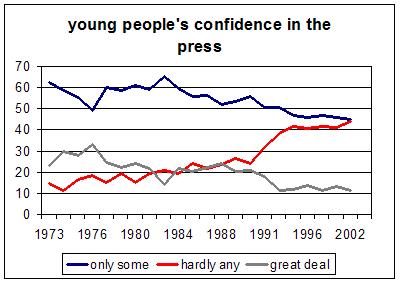Teaching:TUW - UE InfoVis WS 2008/09 - Gruppe 09 - Aufgabe 1 - Types of Data (quantitative vs. qualitative): Difference between revisions
Jump to navigation
Jump to search
(New page: {{Quotation | All research ultimately has a qualitative grounding | [Donald Campbell] }}{{Quotation | There's no such thing as qualitative data. Everything is either 1 or 0 | [Fred Kerling...) |
mNo edit summary |
||
| Line 1: | Line 1: | ||
{{Quotation | All research ultimately has a qualitative grounding | [Donald Campbell] }}{{Quotation | There's no such thing as qualitative data. Everything is either 1 or 0 | [Fred Kerlinger] }} | {{Quotation | All research ultimately has a qualitative grounding | [Donald Campbell] }}{{Quotation | There's no such thing as qualitative data. Everything is either 1 or 0 | [Fred Kerlinger] }} | ||
You can distinct between two types of (collecting) data: ''quantitative data'' and ''qualitative data'' | |||
=Main points= | |||
===Qualitative=== | ===Qualitative=== | ||
*Qualitative research involves analysis of data such as words (e.g., from interviews), pictures (e.g., video), or objects (e.g., an artifact). | *Qualitative research involves analysis of data such as words (e.g., from interviews), pictures (e.g., video), or objects (e.g., an artifact). | ||
| Line 19: | Line 19: | ||
---- | ---- | ||
=== | =More= | ||
===some more detailed features of=== | |||
<table> | |||
<tr> | |||
<td style="padding-right:15px;"> | |||
'''Qualitative data''' | |||
*Researcher tends to become subjectively immersed in the subject matter. | |||
*Qualitative data is more 'rich', time consuming, and less able to be generalized. | |||
*Researcher is the data gathering instrument. | |||
*Researcher may only know roughly in advance what he/she is looking for. | |||
</td> | |||
<td style="padding-right:30px;>'''<big> vs. </big>'''</td> | |||
<td style="padding-left:30px;"> | |||
'''Quantitative data''' | |||
*Researcher tends to remain objectively separated from the subject matter. | |||
*Quantitative data is more efficient, able to test hypotheses, but may miss contextual detail. | |||
*Researcher uses tools, such as questionnaires or equipment to collect numerical data. | |||
*Researcher knows clearly in advance what he/she is looking for. | |||
</td> | |||
</tr> | |||
</table> | |||
---- | |||
===Example: Oil Painting=== | |||
<table> | |||
<tr> | |||
<td style="padding-right:15px;"> | |||
'''Qualitative data:''' | |||
*blue/green color, gold frame | |||
*smells old and musty | |||
*texture shows brush strokes of oil paint | |||
*peaceful scene of the country | |||
*masterful brush strokes | |||
</td> | |||
<td> | |||
'''Quantitative data:''' | |||
*picture is 10" by 14" | |||
*with frame 14" by 18" | |||
*weighs 8.5 pounds | |||
*surface area of painting is 140 sq. in. | |||
*cost $300 | |||
</td> | |||
</tr> | |||
</table> | |||
===Example for quantitative data:=== | |||
[[Image:Confpress.JPG| qualitative data]] | |||
===References=== | |||
[James Neill] Qualitative versus Quantitative Research: | |||
Key Points in a Classic Debate, http://wilderdom.com/research/QualitativeVersusQuantitativeResearch.html<br> | |||
[Donna Roberts] Qualitative vs Quantitative Data, http://www.regentsprep.org/Regents/math/ALGEBRA/AD1/qualquant.htm | |||
Revision as of 20:42, 6 November 2008
All research ultimately has a qualitative grounding
[Donald Campbell]
There's no such thing as qualitative data. Everything is either 1 or 0
[Fred Kerlinger]
You can distinct between two types of (collecting) data: quantitative data and qualitative data
Main points
Qualitative
- Qualitative research involves analysis of data such as words (e.g., from interviews), pictures (e.g., video), or objects (e.g., an artifact).
- Data can be observed but not measured.
whereas
Quantitative
- Quantitative research involves analysis of numerical data.
- Data which can be measured.
More
some more detailed features of
|
Qualitative data
|
vs. |
Quantitative data
|
Example: Oil Painting
|
Qualitative data:
|
Quantitative data:
|
Example for quantitative data:
References
[James Neill] Qualitative versus Quantitative Research:
Key Points in a Classic Debate, http://wilderdom.com/research/QualitativeVersusQuantitativeResearch.html
[Donna Roberts] Qualitative vs Quantitative Data, http://www.regentsprep.org/Regents/math/ALGEBRA/AD1/qualquant.htm
